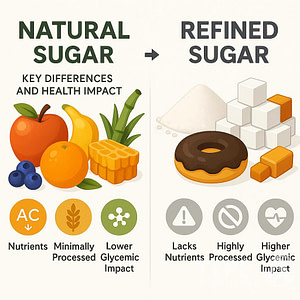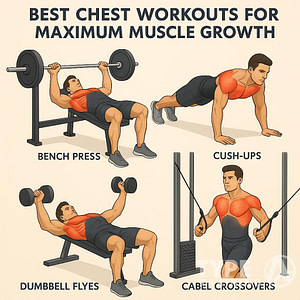If you’re looking to build muscle, protein is an essential nutrient that can help you achieve your goals. But how much protein do you actually need? The answer depends on a variety of factors, including your age, weight, and activity level. In this article, we’ll explore the relationship between protein and muscle building, as well as the importance of health and aging, and weight loss.
As you age, your body’s ability to manufacture muscle from protein decreases, which can lead to a loss of muscle mass and strength. This is why increasing your dietary protein intake, in combination with muscle-building exercise, can be especially important for older adults. According to a study published in the Tufts Health & Nutrition Letter, “we know that in extreme conditions of protein malnutrition people lose muscle mass pretty rapidly.” By increasing your protein intake, you can help to maintain muscle mass and strength, which can be critical for overall health and well-being.
In addition to its importance for muscle building, protein can also play a key role in weight loss. By increasing your protein intake, you can help to reduce hunger and increase feelings of fullness, which can make it easier to stick to a healthy eating plan. Plus, protein shakes can be a convenient and tasty way to boost your protein intake, especially if you’re on the go or don’t have time to prepare a full meal. So whether you’re looking to build muscle, lose weight, or simply stay healthy as you age, protein can be an essential part of your diet.
Understanding Protein and Its Role in Muscle Building
Popular posts:
If you’re looking to build muscle, protein is an essential nutrient that you need to include in your diet. Protein is made up of amino acids, which are the building blocks of muscle. When you consume protein, your body breaks it down into amino acids, which are then used to repair and build new muscle tissue.
There are 20 different amino acids, nine of which are essential amino acids that your body can’t produce on its own. These essential amino acids need to be obtained through your diet, making it crucial to consume enough protein to ensure you’re getting all the necessary amino acids.
Muscle protein synthesis is the process by which your body builds new muscle tissue. This process requires amino acids, which are provided by protein. The more protein you consume, the more amino acids your body has available to use for muscle protein synthesis, which can lead to increased muscle growth.
It’s important to note that simply consuming more protein won’t necessarily lead to more muscle growth. Resistance training is also necessary to stimulate muscle protein synthesis and promote muscle growth. However, consuming enough protein is essential to support muscle growth and repair.
According to a study published in the journal Nutrients, “increased protein intake contributes to greater strength and muscle mass gains when coupled with resistance exercise.” The study also notes that consuming more protein can help preserve muscle mass during periods of negative energy balance, limit age-related muscle loss, and provide a greater muscle protein synthetic response.
So, how much protein do you need to consume to build muscle? The answer varies depending on factors such as your age, sex, weight, and activity level. The National Academy of Medicine recommends that adults consume a minimum of 0.8 grams of protein per kilogram of body weight per day. However, individuals looking to build muscle may need to consume more protein than this.
In general, it’s recommended that individuals looking to build muscle consume between 1.2 and 2.2 grams of protein per kilogram of body weight per day. For example, if you weigh 150 pounds (68 kilograms), you would need to consume between 82 and 149 grams of protein per day.
In conclusion, protein is an essential nutrient for building muscle and promoting muscle growth. Consuming enough protein, along with resistance training, can help stimulate muscle protein synthesis and lead to increased muscle growth. It’s important to consume a sufficient amount of protein to ensure you’re getting all the necessary amino acids and to support muscle growth and repair.
Recommended Protein Intake
source: lifegrip.com.au
Protein is an essential nutrient that plays a crucial role in building and repairing muscle tissue, maintaining healthy bones, and supporting the immune system. The recommended daily intake of protein varies depending on factors such as age, gender, activity level, and overall health.
Adult Men
The recommended dietary allowance (RDA) for protein intake in adult men is approximately 56 grams per day. However, this amount may vary depending on factors such as activity level and muscle mass. Men who are physically active and engage in strength training may require more protein to support muscle repair and growth.
Adult Women
The RDA for protein intake in adult women is approximately 46 grams per day. However, this amount may vary depending on factors such as activity level, muscle mass, and pregnancy status. Pregnant women require additional protein to support the growth and development of the fetus.
Children and Teenagers
Children and teenagers require protein to support growth and development. The RDA for protein intake in children and teenagers varies depending on age. For example, children aged 4-8 years require approximately 19 grams of protein per day, while teenagers aged 14-18 years require approximately 52 grams of protein per day.
Pregnant Women
Pregnant women require additional protein to support the growth and development of the fetus. The RDA for protein intake in pregnant women is approximately 71 grams per day. However, this amount may vary depending on factors such as activity level and overall health.
Older Adults
As we age, our bodies become less efficient at processing protein. Therefore, older adults may require more protein to maintain muscle mass and prevent age-related muscle loss. The RDA for protein intake in older adults is approximately 0.8 grams per kilogram of body weight per day.
Athletes
Athletes require more protein to support muscle repair and growth. The amount of protein required varies depending on the type of sport and intensity of training. Endurance athletes may require approximately 1.2-1.4 grams of protein per kilogram of body weight per day, while strength athletes may require approximately 1.4-1.8 grams of protein per kilogram of body weight per day.
People on a Weight Loss Diet
Protein can help with weight loss by reducing appetite and increasing feelings of fullness. The RDA for protein intake in people on a weight loss diet is approximately 1.2-1.6 grams per kilogram of body weight per day. However, it is important to note that a calorie deficit is the most important factor in weight loss, and excessive protein intake can lead to weight gain.
Here is a table to help you determine your daily protein intake:
| Age Group | Recommended Daily Protein Intake |
|---|---|
| Adults | 0.8 grams per kilogram of body weight |
| Children | 1.1-1.5 grams per kilogram of body weight |
| Athletes | 1.2-1.8 grams per kilogram of body weight |
Sources:
- Protein and Amino Acids – Dietary Reference Intakes (DRIs)
- Protein – Health Encyclopedia – University of Rochester Medical Center
Sources of Protein
source: thebodybuildingdietitians.com
Protein is an essential nutrient that plays a crucial role in building and repairing muscles, bones, and other tissues in your body. When it comes to building muscle, consuming enough protein is crucial. But where can you find protein? Here are some of the best sources of protein you can include in your diet:
Animal-based protein sources
Animal-based protein sources are some of the richest sources of protein. They are also complete sources of protein, meaning they contain all the essential amino acids your body needs to build muscle. Some of the best animal-based sources of protein include:
- Meat, poultry, and fish: These are some of the most popular sources of protein. They are also rich in other nutrients such as iron, zinc, and vitamin B12.
- Dairy products: Milk, cheese, and yogurt are all excellent sources of protein. They are also rich in calcium, which is essential for bone health.
- Eggs: Eggs are a great source of protein, with one large egg containing about 6 grams of protein.
Plant-based protein sources
Plant-based protein sources are also an excellent way to get the protein you need to build muscle. While they may not be complete sources of protein, you can combine different plant-based sources to get all the essential amino acids your body needs. Some of the best plant-based sources of protein include:
- Legumes and beans: Lentils, chickpeas, black beans, and kidney beans are all excellent sources of protein. They are also rich in fiber, which can help you feel full and satisfied.
- Nuts and seeds: Almonds, peanuts, chia seeds, and flaxseeds are all great sources of protein. They are also rich in healthy fats, vitamins, and minerals.
- Whole grains and vegetables: Quinoa, brown rice, and spinach are all great sources of protein. They are also rich in other nutrients such as fiber, iron, and vitamin C.
| Protein Source | Protein Content |
|---|---|
| Chicken breast (skinless, cooked) | 31g |
| Salmon (cooked) | 22g |
| Greek yogurt | 17g |
| Lentils (cooked) | 18g |
| Almonds | 6g |
| Quinoa (cooked) | 8g |
In conclusion, whether you prefer animal-based or plant-based sources of protein, there are plenty of options available to help you meet your protein needs. By incorporating a variety of protein-rich foods into your diet, you can ensure you are getting all the essential amino acids your body needs to build and repair muscle.
The Link Between Protein, Health, and Aging
Protein is an essential macronutrient that plays a vital role in building and repairing tissues, including muscle tissue. As you age, your body’s ability to manufacture muscle from protein decreases, which can lead to a loss of muscle mass and strength. This condition is known as sarcopenia and is a major risk factor for frailty and physical function impairment.
Increasing your dietary protein intake, in conjunction with muscle-building exercise, can help maintain muscle mass and strength. Studies have shown that higher dietary protein intake of up to 1.2 g/kg bodyweight/day may help prevent sarcopenia and maintain musculoskeletal health in older individuals [1].
However, it is important to note that excessive protein intake may have negative effects on health, such as increased risk of kidney damage, osteoporosis, and cardiovascular disease. Therefore, it is important to consume protein in moderation and as part of a balanced diet.
Here are some pros and cons of eating protein:
| Pros | Cons |
|---|---|
| Helps build and repair tissues | Excessive protein intake may increase the risk of kidney damage |
| Essential for muscle growth | High protein diets may increase the risk of osteoporosis |
| Can help maintain muscle mass and strength | Excessive protein intake may increase the risk of cardiovascular disease |
| May aid in weight loss | Consuming too much protein may lead to an increased risk of certain cancers |
| Helps keep you feeling full | Excessive protein intake may lead to nutrient deficiencies if other food groups are excluded |
In summary, protein is essential for maintaining muscle mass and strength, particularly as you age. However, it is important to consume protein in moderation and as part of a balanced diet to avoid negative health effects.
[1] Protein Intake and Muscle Function in Older Adults. (2015). PMC. https://www.ncbi.nlm.nih.gov/pmc/articles/PMC4394186/
Protein and Weight Loss
Protein is an essential nutrient that plays a crucial role in weight loss. It can help you feel full, reduce cravings, and increase metabolism, all of which can lead to weight loss. In this section, we will discuss the role of protein in weight loss and the recommended daily protein intake for weight loss.
Role of protein in appetite control
Protein is known to be more satiating than carbohydrates and fats, which means it can help you feel full and reduce cravings. This is because protein takes longer to digest and absorb, keeping you feeling full for longer periods. Studies have shown that increasing protein intake can lead to reduced calorie intake, which can lead to weight loss.
Effect of protein on metabolism
Protein has a higher thermic effect than carbohydrates and fats, which means it requires more energy to digest and absorb. This can increase metabolism and lead to increased calorie burning, which can contribute to weight loss. Additionally, protein can help preserve muscle mass during weight loss, which can also increase metabolism and contribute to weight loss.
Recommended daily protein intake for weight loss
The recommended daily protein intake for weight loss depends on various factors, such as age, sex, weight, and activity level. According to the Cleveland Clinic, the recommended daily protein intake for weight loss is 0.8 grams of protein per kilogram of body weight. For example, if you weigh 68 kilograms, you should aim to consume 54.4 grams of protein per day.
However, highly active people may need more protein to support their activity level and muscle mass. As mentioned in Medical News Today, studies have shown that daily intake of 0.6-0.75 grams of protein per pound of body weight, or 1.2-1.6 grams per kilogram, may promote fat loss and protect against the loss of muscle mass during weight loss and aging.
In summary, protein is an essential nutrient that can play a crucial role in weight loss. It can help you feel full, reduce cravings, increase metabolism, and preserve muscle mass during weight loss. The recommended daily protein intake for weight loss is 0.8 grams of protein per kilogram of body weight, but highly active people may need more protein to support their activity level and muscle mass.
Protein and Bone Health
source: https://theswiftinstitute.com/osteoporosis/
Protein is an essential nutrient that plays a crucial role in bone formation. Your bones are made up of a protein matrix that provides strength and structure. Adequate protein intake is necessary to maintain bone health and prevent osteoporosis, a condition characterized by weak and brittle bones.
Studies have shown that protein intake can have a positive effect on bone mineral density (BMD), which is a measure of bone strength. A higher BMD is associated with a lower risk of fractures. In fact, a meta-analysis of 14 studies found that higher protein intake was associated with a 1.5-2.3% increase in BMD in the hip and spine, which are the most common sites of fractures in older adults.
The recommended daily protein intake for bone health varies depending on age, sex, and physical activity level. According to the National Osteoporosis Foundation, adults over the age of 50 should aim for 1-1.2 grams of protein per kilogram of body weight per day to maintain bone health. This means that a 150-pound person should consume 68-82 grams of protein per day.
It’s important to note that not all protein sources are created equal when it comes to bone health. Animal-based proteins, such as meat, poultry, fish, eggs, and dairy, are rich in all the essential amino acids needed for bone formation. Plant-based proteins, such as beans, legumes, nuts, and seeds, are also good sources of protein but may not contain all the essential amino acids.
In summary, protein is essential for bone health and can have a positive effect on bone mineral density. The recommended daily protein intake for bone health varies depending on age, sex, and physical activity level. Animal-based proteins are rich in all the essential amino acids needed for bone formation, while plant-based proteins may not contain all the essential amino acids.
Protein and Immune Function
source: https://www.nutritionnews.abbott
Protein is an essential nutrient that plays a crucial role in maintaining a healthy immune system. It is responsible for the production of antibodies, which are proteins that help fight against infections and diseases. Adequate protein intake is necessary to ensure that the immune system functions properly.
Research has shown that protein deficiency can have a negative impact on immune function. When the body lacks protein, it is unable to produce enough antibodies to fight off infections. This can lead to an increased risk of infectious diseases, as well as a longer recovery time from illnesses.
The recommended daily protein intake for immune health varies depending on factors such as age, sex, weight, and activity level. According to the Institute of Medicine, the recommended dietary allowance (RDA) for protein is 0.8 grams per kilogram of body weight per day for adults. However, some experts suggest that this amount may not be sufficient for optimal immune function, especially in older adults.
In addition to meeting your daily protein requirements, it is also important to consume a variety of protein sources. This can include lean meats, poultry, fish, eggs, dairy products, legumes, and nuts. Each of these protein sources provides a unique blend of amino acids, which are the building blocks of protein.
In summary, protein plays a crucial role in maintaining a healthy immune system. Protein deficiency can have a negative impact on immune function, making it important to consume adequate amounts of protein each day. A variety of protein sources should be included in your diet to ensure that you are getting all of the necessary amino acids for optimal immune function.
Sources:
The Benefits of Protein Powder
Protein powder is an easy and convenient way to supplement your daily dietary intake of protein. It can be derived from both animal and plant-based protein sources and can be flavored or unflavored. Protein powder is most commonly mixed with water, milk, or another liquid as part of a protein shake or smoothie. It can also be used in a variety of other ways, such as baking or mixing into oatmeal or cereal.
Whey protein
Whey protein is a protein source that comes from the liquid that is leftover when using cow’s milk to make cheese. It is dried and processed to the powdered supplement form. Based on the level of processing and refining, there are three different types of whey protein powder: concentrate, isolate, and hydrolyzed whey. All forms of whey are considered a complete source of protein, containing all of the amino acid building blocks that our bodies need.
Whey protein is a popular choice for athletes and fitness enthusiasts because it is easily digested and absorbed by the body. It is also rich in leucine, an amino acid that plays a key role in muscle protein synthesis.
Casein protein
Like whey protein, casein protein is isolated from cow’s milk. However, it is digested and absorbed by the body more slowly than whey protein. This makes it a good option for people who want a protein source that provides a sustained release of amino acids over a longer period of time.
Lactose-Free Protein
For people who are lactose intolerant or have a dairy allergy, there are lactose-free protein powder options available. These protein powders are made from non-dairy sources such as pea, soy, or rice protein.
Plant-based protein powders
Plant-based protein powders are derived from sources such as peas, soy, hemp, and rice. They are a good option for vegetarians, vegans, and people who have a lactose intolerance or dairy allergy.
Plant-based protein powders are also a good source of fiber and other nutrients such as iron, calcium, and magnesium. They can be used in the same way as whey protein powder and can be added to smoothies, baked goods, and other recipes.
Soy-Free and Non-GMO Protein
For people who want to avoid soy or genetically modified organisms (GMOs), there are soy-free and non-GMO protein powder options available. These protein powders are made from non-soy sources such as pea, hemp, or rice protein.
In summary, protein powder can be a convenient and effective way to supplement your daily dietary intake of protein. It can aid in muscle growth, help with weight management, speed up recovery after exercise, provide added nutrition, and is convenient to use. There are many different types of protein powders available, including whey, casein, lactose-free, plant-based, and soy-free and non-GMO options. Choose the one that best fits your dietary needs and preferences.
Role of Physical Activity and Resistance Training
To build muscle, physical activity and resistance training are essential. Resistance training involves exercises that use weights, resistance bands, or bodyweight to strengthen muscles. It is recommended that you engage in resistance training at least two days per week, targeting all major muscle groups.
Physical activity, in general, is also important for muscle growth and maintenance. It helps to increase blood flow to muscles and improves the delivery of nutrients and oxygen to muscles, which promotes muscle growth. Additionally, physical activity can help prevent muscle loss that can occur with aging.
In terms of weight loss, physical activity and resistance training can help increase your metabolism, allowing you to burn more calories even when you’re not exercising. Resistance training, in particular, can help preserve muscle mass while losing weight, which is important for maintaining strength and overall health.
When it comes to performance, resistance training has been shown to improve strength, power, and endurance. It can also help to prevent injuries by strengthening muscles and improving balance and coordination.
Overall, incorporating physical activity and resistance training into your routine is crucial for building and maintaining muscle mass, preventing muscle loss with aging, promoting weight loss, and improving performance.
Benefits and drawbacks of protein supplements
source: 21dayhero.com
When it comes to building muscle, protein supplements can be a convenient and effective way to increase your protein intake. However, like any supplement, there are both benefits and drawbacks to consider.
Benefits of protein supplements
- Convenience and ease of use: Protein supplements are quick and easy to consume, making them a convenient choice for those with busy lifestyles or who struggle to get enough protein from whole foods.
- Recommended usage and dosage: Protein supplements can help you meet your daily protein requirements, especially if you’re an athlete or bodybuilder who needs more protein than the average person.
- Muscle growth: Consuming protein supplements in conjunction with regular exercise can help increase muscle mass and strength.
- Lots of water: Protein supplements can help you stay hydrated, as many supplements require you to drink a lot of water to properly digest them.
Drawbacks of protein supplements
- Potential side effects: Consuming too much protein can lead to negative side effects, such as digestive issues, dehydration, and even kidney damage. It’s important to follow recommended usage and dosage guidelines.
- Illness: People with certain medical conditions, such as kidney disease, may need to limit their protein intake. It’s important to talk to your doctor before starting any new supplement regimen.
- Saturated fat: Some protein supplements, such as those made from animal sources, can be high in saturated fat, which can increase your risk of heart disease.
- Testosterone: There is some evidence to suggest that consuming too much soy protein, a common ingredient in many plant-based protein supplements, may lower testosterone levels in men. However, more research is needed to fully understand the effects of soy on testosterone levels.
It’s important to remember that protein supplements should not replace whole foods in your diet. While they can be a convenient way to increase your protein intake, it’s important to consume a variety of protein sources, including lean meats, fish, eggs, and legumes.
When choosing a protein supplement, be sure to read the label carefully and look for a product that is low in saturated fat and added sugars. Additionally, be sure to follow recommended usage and dosage guidelines and drink plenty of water to stay hydrated.
Conclusion
In conclusion, protein is a crucial nutrient for building and maintaining muscle mass, especially as you age. The amount of protein you need depends on various factors, including your body weight, physical activity level, and overall health. According to recent research, consuming at least 1.6 grams of protein per kilogram of body weight per day may be optimal for building muscle mass.
However, it’s important to note that protein alone won’t help you build muscle. You also need to engage in regular strength training exercises and consume enough calories to support muscle growth. Additionally, protein can be beneficial for weight loss, as it can help you feel fuller for longer and may boost your metabolism.
When choosing protein sources, it’s important to select high-quality options such as lean meats, eggs, dairy, and plant-based sources like beans, nuts, and seeds. Protein supplements such as protein powder can also be a convenient way to increase your protein intake, but it’s important to choose a high-quality product that is free from harmful additives.
Overall, by consuming adequate amounts of protein and engaging in regular exercise, you can build and maintain muscle mass, support healthy aging, and achieve your weight loss goals. If you’re looking for a high-quality protein powder, be sure to check out my protein powder review for more information.
Frequently Asked Questions
What is the optimal protein intake for muscle growth?
The optimal protein intake for muscle growth varies depending on factors such as body weight and physical activity level. However, research suggests that consuming 1.6-2.2 grams of protein per kilogram of body weight per day may be beneficial for maximizing muscle growth and recovery. [1]
What is the role of protein in muscle building?
Protein is essential for muscle building and repair. When you engage in resistance training, your muscles experience small tears that need to be repaired through the process of muscle protein synthesis. Consuming protein provides the necessary amino acids for this process, which can lead to muscle growth and strength gains over time. [2]
How much protein should I eat to lose weight and build muscle?
The amount of protein you should consume to lose weight and build muscle depends on your individual needs and goals. However, research suggests that consuming 1.6-2.2 grams of protein per kilogram of body weight per day may be beneficial for both weight loss and muscle building. [1]
What is the recommended daily protein intake for muscle health with aging?
As we age, our bodies become less efficient at building and maintaining muscle mass. To help combat this, it is recommended that older adults consume 1-1.2 grams of protein per kilogram of body weight per day to maintain muscle mass and function. [4]
Do you need more protein to build muscle as you age?
Research suggests that older adults may require slightly more protein to build and maintain muscle mass compared to younger adults. Consuming 1.2-1.6 grams of protein per kilogram of body weight per day may be beneficial for older adults looking to build muscle. [5]
How much protein is needed to prevent muscle atrophy?
Muscle atrophy, or the loss of muscle mass, can occur due to factors such as aging, inactivity, and illness. Consuming 1.2-1.6 grams of protein per kilogram of body weight per day may be beneficial for preventing muscle atrophy and maintaining muscle mass. [2]
















